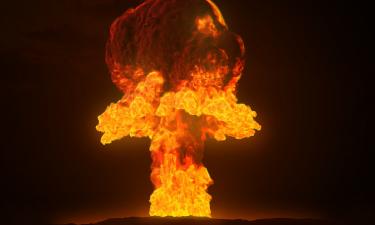Glazyev's Gambit: Opportunist or Visionary?
State Duma Deputy and People's Patriot Union of Russia co-Chairman Sergei Glazyev announced a new political pre-elections initiative this week that could potentially shake-up what has been a boring campaign leading up to the December 7 vote
He plans to create a new left-of-center patriotic movement that de facto aims to capture the most moderate voters of the Communist Party of the Russian Federation (KPRF). Top members of the new movement's elections list could include well-known People's Party member Dmitry Rogozin, General Georgy Shpack, a former commander of Russia's airborne troops, with ORT Deputy General Director Marat Gelman involved in the movement’s campaign. Glazyev appears motivated to make his new project a success, and has even invited the Communist Party to become a member of the movement, claiming that without it his leftist-patriotic coalition is likely to have less of an impact.
The Communist Party, needless to say, was not very happy with Glazyev’s announcement, as it was expected that Glazyev would eventually accept an invitation to join the KPRF's election list. With Glazyev's announcement, the reaction of the KPRF was predictable: it believes that the Kremlin presidential administration is, one way or another, behind Glazyev. The Communists invariably make this claim when one of their own parts with the party's democratic centralism to start something new. Additionally, the leadership of the KPRF claims that such pseudo-patriotic movements are being artificially created with the intent to only detract voters from the Party. (This claim should not be dismissed out of hand; the Kremlin appears to a predisposition to have its fingers in anything related to politics).
Explaining Glazyev initiative falls into two broad spheres: personal political ambition and an understanding the need for Russia’s left to reform itself. Glazyev very much desired to be a candidate in the 2000 presidential elections, though in the end the coalition of left wing parties and groups gathered together to support only one candidate, leader of the KPRF Gennady Zyuganov. Public opinion polls consistently report that the Communists have significant backing among the population of Russia, with some of Party’s rigid ideological stances abandoned or softened. Nonetheless, it is very unlikely that Zyuganov will find himself inaugurated as president of the Russian Federation next spring in the wake of the campaign to challenge incumbent President Vladimir Putin. Thus, Glazyev may be aiming to consolidate all non-controlled Kremlin forces around him - something that Zyuganov and his close cohorts have refused to attempt. Glazyev believes that he can unite these forces, but still needs the support of the Communists, a party in which he still has considerable ideological affinity.
It is also possible that a deal has been struck between Glazyev and Zyuganov. Glazyev will go on his own way, collecting the support of many voters only to return to the fold and back the Communists just before the Duma election. Lastly, it should not be discounted that there is a real power struggle over who is to lead the left-orientated part of Russia’s political spectrum with an eye to the 2004 presidential elections. Even among many members of the KPRF, Zyuganov is not seen as a winner or even very presidential.
Glazyev's bid to capture the left-patriotic vote in Russia has a logic of its own beyond one politician’s personal political ambitions. Over a decade after the collapse of the Soviet Union, Russia has yet to have a meaningful social democratic party that is competitive in a democracy with an emerging market economy. The KPRF has been a disaster for Russia's stillborn democracy. The Communist Party resists change and has become too comfortable with it "opposition" status to the Kremlin. Instead of developing a compelling political agenda that addresses Russia's grave social problem, Zyuganov and his people waste their energy (and prestige) making sure the party remains monolith and rigidly controlled.
Glazyev's bid is a hope that the KPRF can learn from the former communist parties of Eastern Europe. Those parties abandoned an ideology that was no longer practicable and policies that has nothing to with a competitive democratic with a market economy. What Glazyev is intent on creating is nothing less than a new non-communist opposition for an electorate that has been left politically homeless for over a decade. If he succeeds, Russia political landscape could be dramatically changed.
At present, Russia's political parties either represent the authorities, themselves, or make the hallow claim that they represent the all the people. The group called United Russia reflects the Kremlin’s interests, the SPS and Yabloko more or less represent themselves, and Zhirinovsky's party represents compromised protest. The Communist Party, Russia’s only real political party, continues to represent a failed past. Glazyev's gambit should make all these parties take pause. The KPRF and the United Russia should be most concerned with Glazyev's desire to transform Russia’s electoral politics. The KPRF has delivered almost nothing to its constituencies in recent memory beyond ranting about the status quo. United Russia should worry because what it stands for is vaguely understood even among its members. Glazyev's idea may be very compelling for many Russian voters who hope for political change that benefits the average person.
Clearly Sergei Glazyev is an ambitious and hopeful politician. However, he is on to something. He sees that Russia's political transformation has not kept pace with the country's economic transformation. His design to restructure Russia's political left is encouraging. The KPRF should listen to Glazyev's overtures, if it doesn’t the most significant Russian political organization will most likely be rendered nothing more than a biological problem for its foes: it will eventually die and with it quite possibly Russia's experiment with democracy.
Peter Lavelle.



